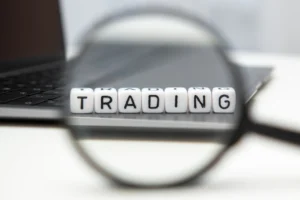Have you ever questioned if your broker truly wants you to win or if you are unknowingly trading against your broker? This question is more important than most traders realise. In the vast forex market, millions of trades are placed every day. However, not all brokers operate the same way. Some act as your direct counterparty, meaning they have a vested interest in your trading outcomes. This setup introduces a powerful broker conflict of interest, where your losses can be their gains. Knowing how this works—and how to protect yourself—can be the deciding factor between trading success and disappointment.
While some traders ignore this issue, many learn the hard way after facing odd price movements, unexplained slippage, and difficulty withdrawing profits. Fortunately, you do not have to fall into these traps. By focusing on forex broker transparency, understanding counterparty risk in forex, and insisting on robust forex broker regulation, you can trade smarter and safeguard your funds. This article will walk you through everything you need to know about this critical topic, from the basics to advanced protection strategies.
What Trading Against Your Broker Means
When you are trading against your broker, your broker fills the opposite side of your trades instead of passing your orders to the wider market. This model is most common with market maker brokers or dealing desk brokers. If you buy EUR/USD, your broker sells it to you. If you sell, your broker buys. Every time you win, your broker loses. Every time you lose, your broker wins. This creates a built-in broker conflict of interest.
Unlike ECN or STP brokers, who connect you directly to outside liquidity providers, market maker brokers have more control over pricing and order flow. This means they can set their own spreads and sometimes even their own prices. It’s no wonder that many traders complain of price spikes, stop-loss hunting, or slow order execution with these brokers. While not all market makers are dishonest, the structure itself encourages potential abuse if the broker lacks integrity or strong oversight.
Forex broker transparency is your only real defence in this scenario. Without it, you might never know whether your trades are genuinely going to the open market or being handled internally. Transparent brokers openly state their execution model and business practices. Non-transparent brokers keep traders guessing and leave room for unfair behaviour.
Broker Conflict of Interest
The broker conflict of interest is a silent threat that can have a significant impact on your results. When your broker stands to profit from your losses, they may have incentives to:
- Widen spreads, especially during news events or periods of low liquidity, making it more expensive for you to enter or exit trades.
- Use slippage to fill your orders at worse prices than requested.
- Delay or reject order execution, especially when the market is volatile or when you are consistently profitable.
- Manipulate prices or create artificial spikes that trigger your stop-loss levels, even if the market price does not move similarly on other platforms.
These actions might seem small individually, but over time they erode your profits and trading confidence. Some brokers have even been accused of running “B-book” operations, where they separate profitable traders from losing ones and manage them differently—sometimes even copying their trades to hedge their own risk. This makes counterparty risk in forex much greater since your broker is not only a service provider but also an opponent.
Importance of Forex Broker Transparency
Forex broker transparency is more than just good customer service—it is your shield against unfair treatment. Transparent brokers provide:
- Clear explanations about whether they operate as a market maker, ECN, or STP.
- Honest details about pricing, spreads, fees, and any potential conflicts of interest.
- Disclosures about how they handle client orders during both calm and volatile markets.
- Information about their regulatory licences, office locations, and dispute resolution processes.
When brokers are transparent, you can make informed choices, manage your risks, and feel secure about the safety of your funds. A transparent broker is likely to resolve issues quickly, answer your questions honestly, and put your interests first—even if you are technically trading against your broker.
On the other hand, lack of transparency is a major red flag. If you cannot get straight answers, if costs or policies are hidden, or if support is evasive, consider moving your account. In today’s market, with so many options, you should never settle for a broker that hides key details.
Counterparty Risk in Forex
Counterparty risk in forex is the possibility that your broker will not honour its commitments. This risk rises dramatically when you trade against your broker, especially if they are unregulated or based in offshore jurisdictions with little oversight. Real-world examples include:
- Brokers that refuse withdrawals or invent excuses to delay payments.
- Platforms that experience “technical issues” during major news events, preventing you from managing your trades.
- Sudden changes to trading conditions, such as margin requirements or maximum lot sizes, designed to protect the broker’s own interests.
If your broker becomes insolvent, you may lose your deposit completely. This has happened before—history is filled with stories of brokers disappearing with client money. Without forex broker regulation and a clear legal framework, recovering lost funds is often impossible. That’s why smart traders treat counterparty risk in forex as a major part of their overall risk management plan.
Forex Broker Regulation
Forex broker regulation is your greatest ally in the fight against conflict of interest and counterparty risk. Regulators like the FCA (UK), ASIC (Australia), and CySEC (Europe) enforce strict standards. Regulated brokers must:
- Segregate client funds from company assets.
- Submit to regular audits and financial reporting.
- Disclose their execution models and business practices.
- Handle complaints fairly and resolve disputes according to established procedures.
A regulated broker is less likely to manipulate prices or refuse withdrawals, as doing so could result in heavy fines or loss of licence. Before opening an account, always check your broker’s licence status on the regulator’s official website. Avoid brokers who cannot or will not provide this information. Regulation does not guarantee perfection, but it dramatically lowers your risk.
How to Recognise and Respond to Red Flags
Spotting danger early is crucial. Watch for these red flags:
- Frequent requotes or “off quotes” messages when trying to enter or exit trades.
- Slippage that always seems to go against you, never in your favour.
- Spreads that suddenly widen with no market explanation.
- Stop-loss orders triggered by price spikes not seen on other platforms.
- Customer support that is slow, evasive, or gives conflicting information.
- Withdrawal requests that are delayed, questioned, or denied without clear reason.
If you notice one or more of these issues, start by documenting every incident. Keep screenshots, emails, and detailed notes. Contact customer support and ask direct questions about execution, spreads, and their dealing desk. If the answers are vague or if issues persist, escalate the matter to the regulator, and seriously consider moving your funds to a more reliable broker.
Practical Steps to Protect Yourself
Protecting yourself from the risks of trading against your broker requires consistent action:
Start with solid research. Investigate your broker’s reputation by reading real trader reviews and independent ratings. Make sure to verify the broker’s regulatory licence by looking it up directly on the regulator’s website.
Ask direct questions about the execution model. Request written documentation or detailed explanations about how your trades are handled. Make it clear you want to know if you are trading against your broker and whether your orders are sent to the real market or filled internally.
Keep thorough records of your trading activity. Document execution times, prices, and any instances of slippage, requotes, or unexpected spread changes. These records will be essential if you ever need to dispute an order or contact the regulator.
Consider splitting your trading capital between multiple brokers. Diversifying your accounts helps lower counterparty risk in forex and ensures that if one broker fails, you will not lose all your funds.
Always stay alert for warning signs, such as frequent slippage, price manipulation, delayed withdrawals, or evasive support. If you encounter any of these red flags, reduce your exposure and move your funds to a more transparent, regulated broker as soon as possible.
Remain up to date with industry news and changes in forex broker regulation. The regulatory environment and broker landscape evolve quickly. Staying informed lets you anticipate risks and make the best choices for your trading future.
Trust and Transparency in Forex Trading
Long-term success in forex trading is not just about strategy or timing. It depends heavily on your relationship with your broker. Trust is essential—without it, every trade feels risky. When you choose a broker with high transparency and strict regulation, you free yourself to focus on your trading process and discipline.
Look for brokers who value open communication, provide educational resources, and make it easy to find information about fees, execution, and regulation. When you know your broker is honest, you trade with confidence, resilience, and peace of mind.
Myths About Trading Against Brokers
Many traders assume that all market maker brokers are dishonest. This is not always true. Well-regulated market makers can provide reliable service, fast execution, and deep liquidity. The difference is whether they are open about their model and how they manage client trades.
On the flip side, not all ECN or STP brokers are perfect. Some may have higher costs, slower execution, or limited support. Never choose a broker solely based on marketing labels. Instead, judge by transparency, regulation, responsiveness, and your own experience.
Staying Informed
Forex trading changes constantly. New brokers enter the market, regulations evolve, and trading technology improves. Stay connected to the trading community, join forums, and subscribe to updates from major regulators. If you have a bad experience, share it with others to help prevent similar issues in the future.
Staying informed is not just about avoiding scams—it’s about finding new opportunities, keeping up with changes in risk management, and protecting your hard-earned capital.
Final Thoughts
Trading against your broker is a reality, but it doesn’t have to be a disaster. With thorough research, ongoing vigilance, and the right protective habits, you can reduce your risks and focus on trading success. Insist on forex broker transparency, select only regulated brokers, keep detailed records, and diversify your capital.
Never ignore your instincts or the red flags. If something feels wrong, act quickly and move your funds. Remember, your relationship with your broker is a cornerstone of your trading career. By staying proactive, you keep control over your trading destiny and put yourself on the path to long-term growth, security, and achievement.
Read here to learn more: “The Dark Side of Trading reveals real risks traders face today“

I’m Chaitali Sethi, a financial writer and market strategist focused on Forex trading, market behaviour, and trader psychology. I simplify complex market movements into clear, practical insights that help traders make better decisions and build a stronger trading mindset.




